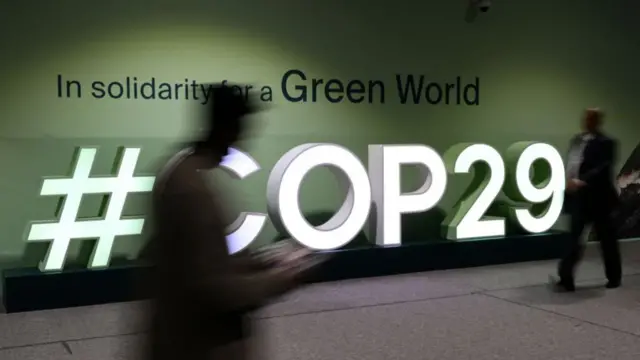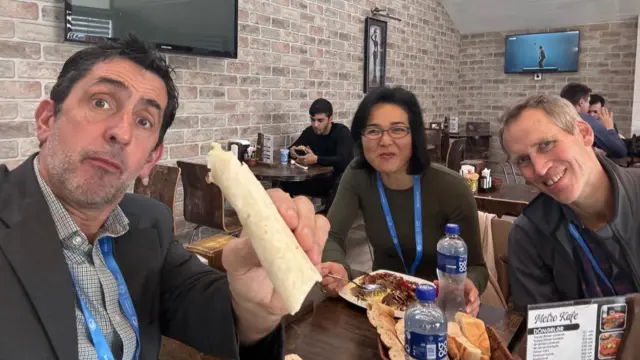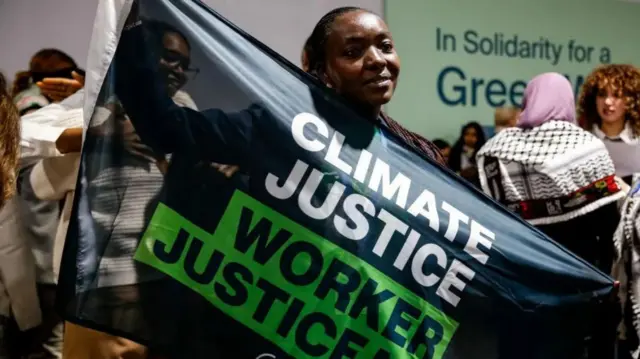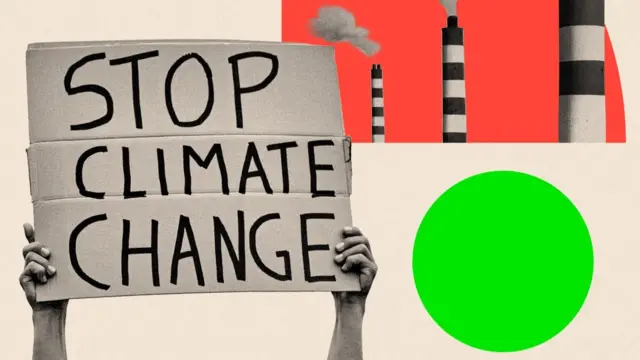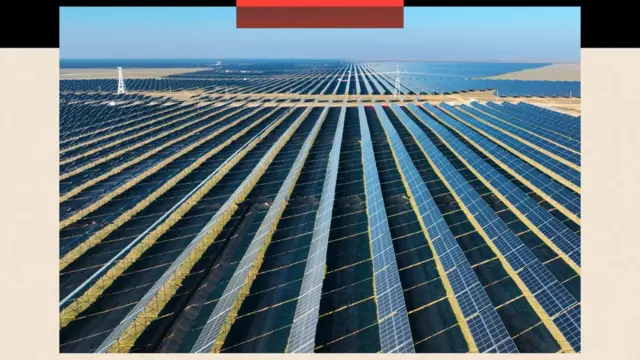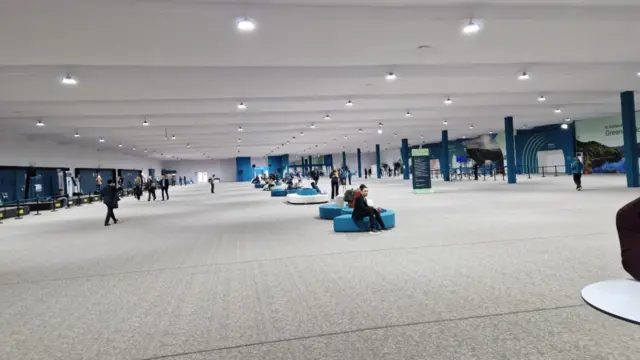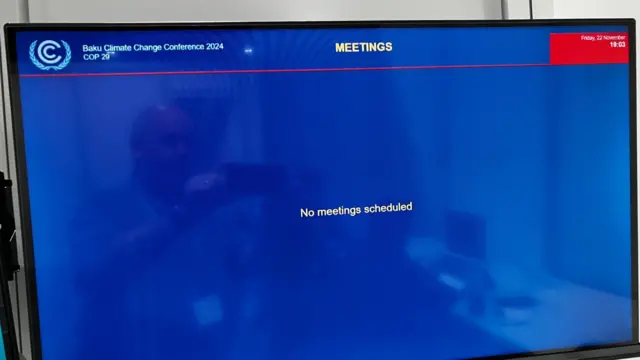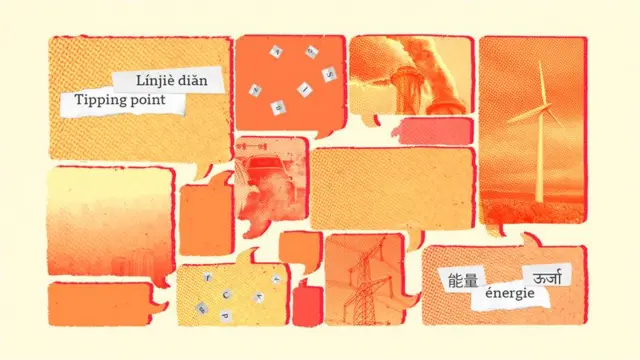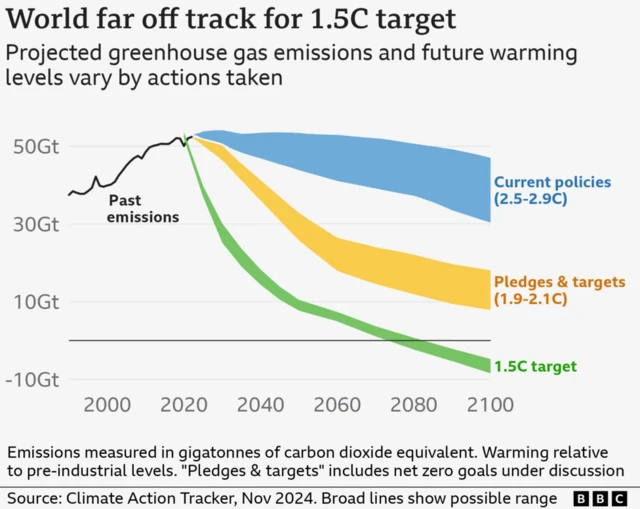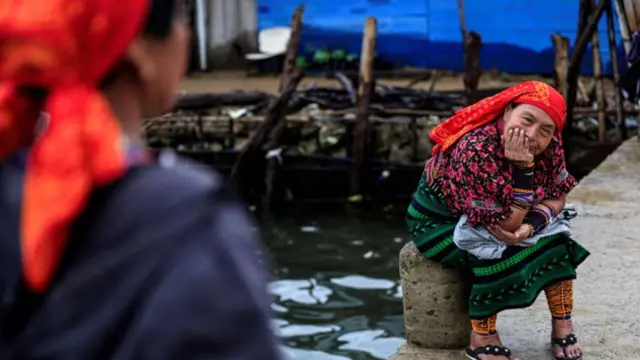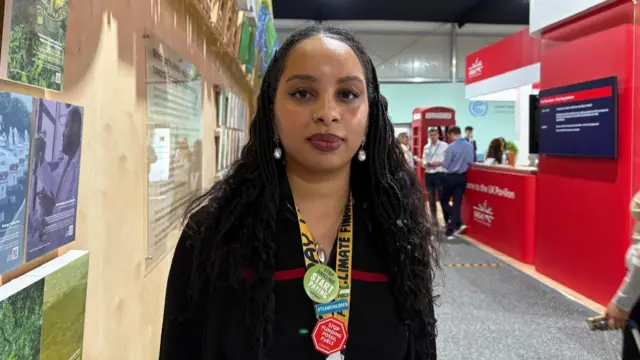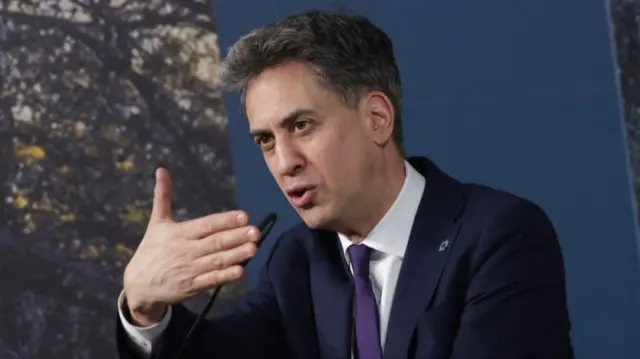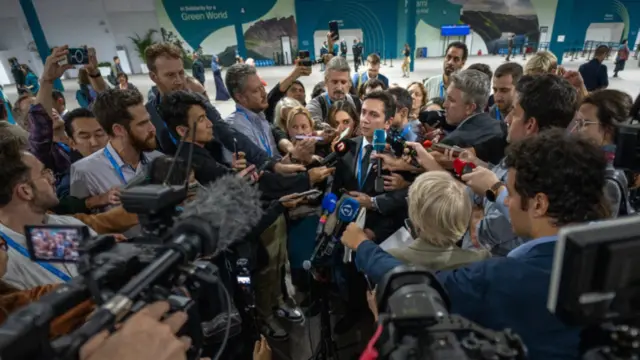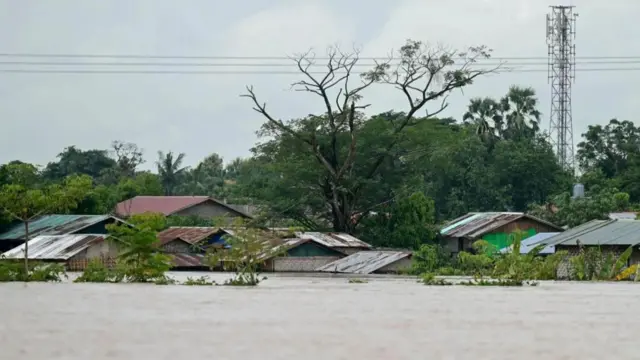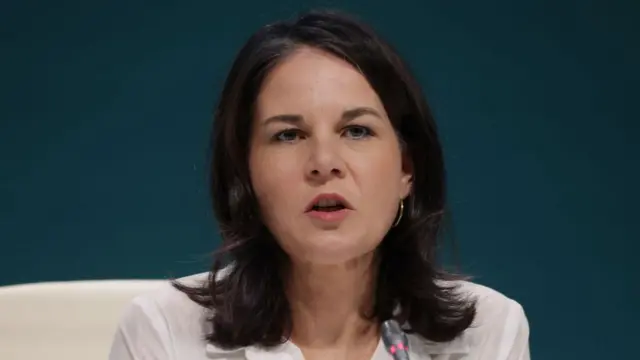Buzz outside 'Meeting Room 3'published at 10:57 GMT 23 November 2024
 Georgina Rannard
Georgina Rannard
Climate reporter in Baku
These talks are all about who is in what room. At the moment, there's a huddle of journalists and observers outside one large room called Meeting Room 3.
The press aren't allowed inside the negotiating halls, so we have to rely on people coming in and out to find out information. Or we text contacts in government delegations.
I'm sitting by the open door - every now and then it opens, and I spy groups of people, which will include ministers, standing in clusters inside.
There are a lot of rumours still circulating.
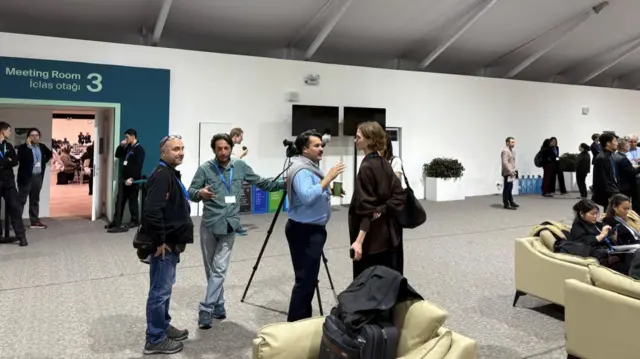
Sometimes the door opens and journalists peer in to get a snippet of information

